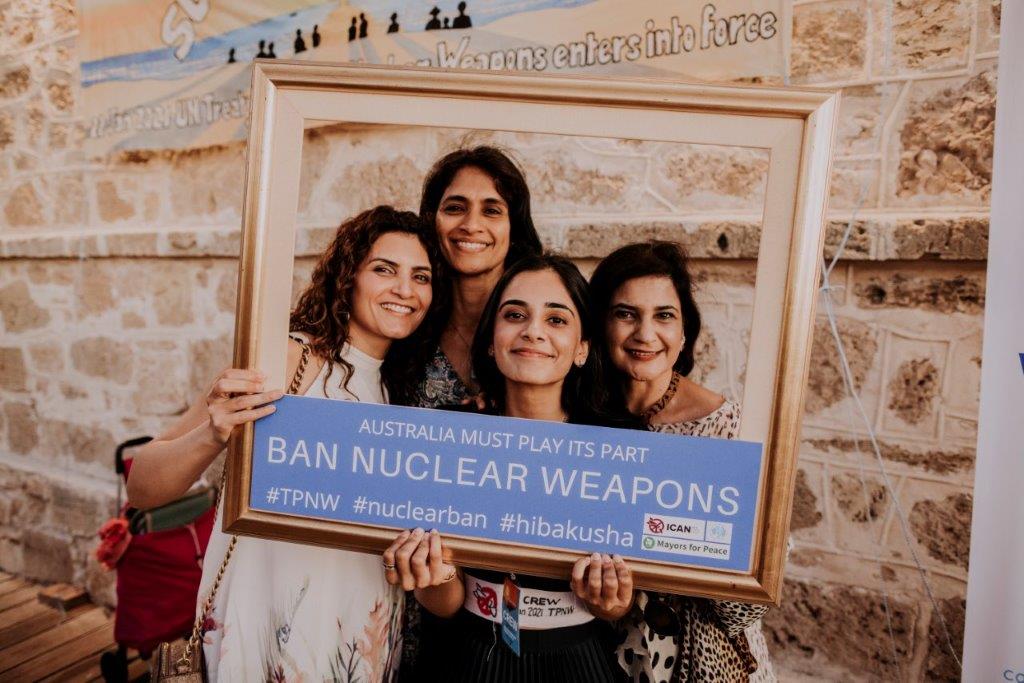The 2017 United Nations (UN) Treaty on the Prohibition of Nuclear Weapons became international law on Friday 22 January, with its ‘entry into force’ now official. The Uniting Church WA actively advocates for a nuclear-free future through the Social Justice Commission and supports the International Campaign to Abolish Nuclear Weapons (ICAN).
Eighty-six states have signed the treaty and 51 countries have now ratified it.
“Entry-into-force cements the illegality of nuclear weapons in international law,” said Dr Tilman Ruff AO, co-founder of ICAN. The treaty seeks to do to nuclear weapons what previous international treaties have done to chemical and biological weapons – ban their use on humanitarian grounds.
“This change will influence the behaviour of states, even those which don’t join the treaty, interrupt the flow of funds to nuclear arms producers, stimulate debate and increase pressure on treaty hold-outs.”
Anti-nuclear campaigners celebrated across the globe, including in Fremantle WA, as the international community takes a huge step toward the elimination of all nuclear weapons. But Australia has not signed or ratified the Treaty, despite committing to pursue nuclear disarmament under the 1970 nuclear Non-Proliferation Treaty.
“The Morrison government claims to be in favour of disarmament, but refuses to support this treaty,” said Gem Romuld, the Director of ICAN Australia. “It’s high time the Australian government followed New Zealand and most other countries in our region and got on the right side of history.”
Eighty-eight Federal MPs and Senators from across the political spectrum support Australia joining the treaty, and the Federal Opposition has committed to sign and ratify in government.
“The international community is demanding an end to nuclear weapons, which pose an unacceptable danger to every single one of us every day that they stand ready to be launched.”
Despite some reductions in recent years there are still over 13 400 nuclear weapons across the globe, controlled by nine nations.
Photo credit: Heather Jones
